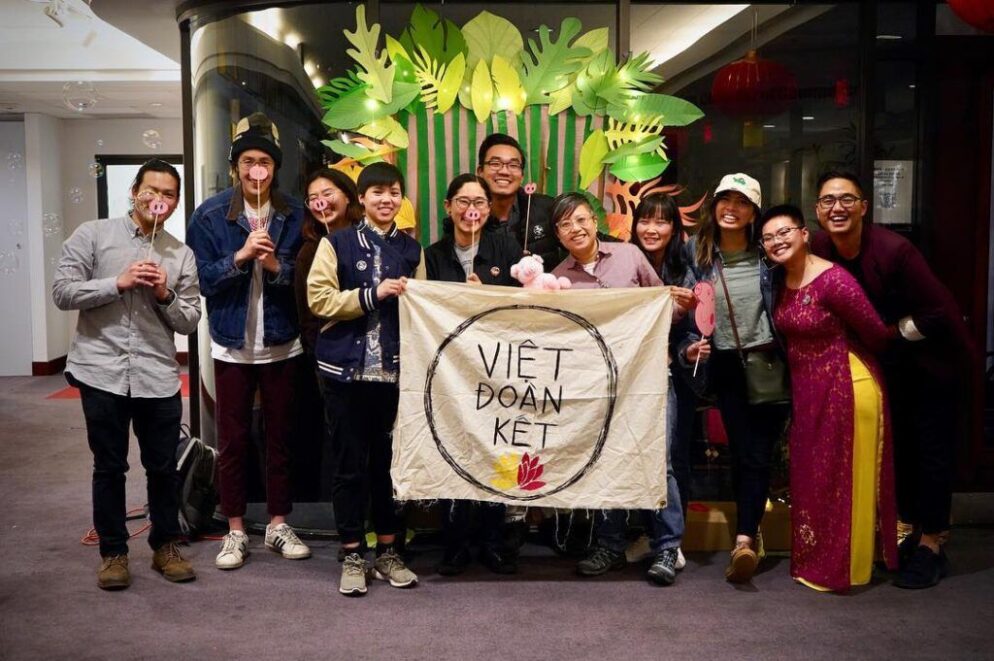After years of being a part of and benefiting from SEARAC’s work, I’m excited to join the staff as SEARAC’s National Director of Field. I took on this role during the same week that the United States withdrew from Afghanistan and the newest community of refugees caused by US military action was created. As if the connection between our SEA refugee experiences could not be more kindred to the experiences currently unfolding for countless Afghan refugees, the community of leaders and lawyers who have been supporting our Southeast Asian community members from being deported are also the same people who immediately organized with Afghan community leaders. Therefore one of my first initiatives as Director of Field was to support SEARAC to act in solidarity with Afghan community leaders.
SEARAC is a proud supporter and partner of Project ANAR, an organization of Afghan community leaders seeking to support the Afghan people displaced by the US withdrawal from Afghanistan. This past week Project ANAR rolled out a new website, new social media efforts, and the support of 120+ orgs nationwide. SEARAC has devoted our resources, connections, and staff to act in solidarity. Why have we done that and why do we think we can do more?
We have done so because solidarity is ultimately about us. It is about us specifically as a Southeast Asian community in the United States and about all of us collectively as people who cannot thrive unless all of us are thriving. Solidarity is the act of showing up. It is showing up to follow the lead of those who are most directly affected and showing up with resources and with our friends who also want to help.
“Solidarity is about us because we have to show up for others if we want them to show up for us in our time of need.”
Solidarity is about us because we need to stay relevant to our communities. Some of us are lucky enough to feel that we have “made it” in America, meaning we have a place to live, food to eat, and the mental space to thrive and not just survive. There are often two ways that we respond: We look back in judgment or apathy at those who haven’t made it. Or, we look forward in kindred spirit with those who are new refugees and act to support them. Solidarity is about looking forward in that kindred spirit and sacrificing some of what we’ve made individually so that “we” can truly “make it” collectively.
Most importantly, solidarity is about our values and living into them. Southeast Asians are the largest group of refugees in the history of America. We had to struggle to be recognized as human beings in order to get the US government to live up to its promises. Many of us had to struggle in refugee camps for years before the 1980 Refugee Act was passed. Many of us struggled for years after arriving in America even though we have become an incredible part of America that includes amazing mothers, fathers, sisters, brothers, teachers, artists, front line workers, community leaders, doctors, and more.
The effort to be seen as human is exactly what Project ANAR is doing. Project ANAR is helping Afghans to apply for humanitarian parole. Afghan refugees will have to go through a rigorous process with filings, documentation, exorbitantly high fees, background checks, and more without any guarantee of a favorable decision. However, in order to even begin this process, they need the notoriously impersonal US immigration bureaucracy to recognize them as human beings in the first place and that is what the submission of a humanitarian parole application effectively does.
Project ANAR and its partners have also been acting, of course, at multiple points in the stream of impact to demand accountability from USCIS in stonewalling the process, to encourage legislators to do their part, and to make sure that Afghans receive full benefits when they arrive to the United States.
All of the reasons above are why we have been acting in proud solidarity with Project ANAR. It is about being our best selves with those who deserve to be their best selves.
Tuân is SEARAC’s Director of Field. You can email him at tuan@searac.org.

